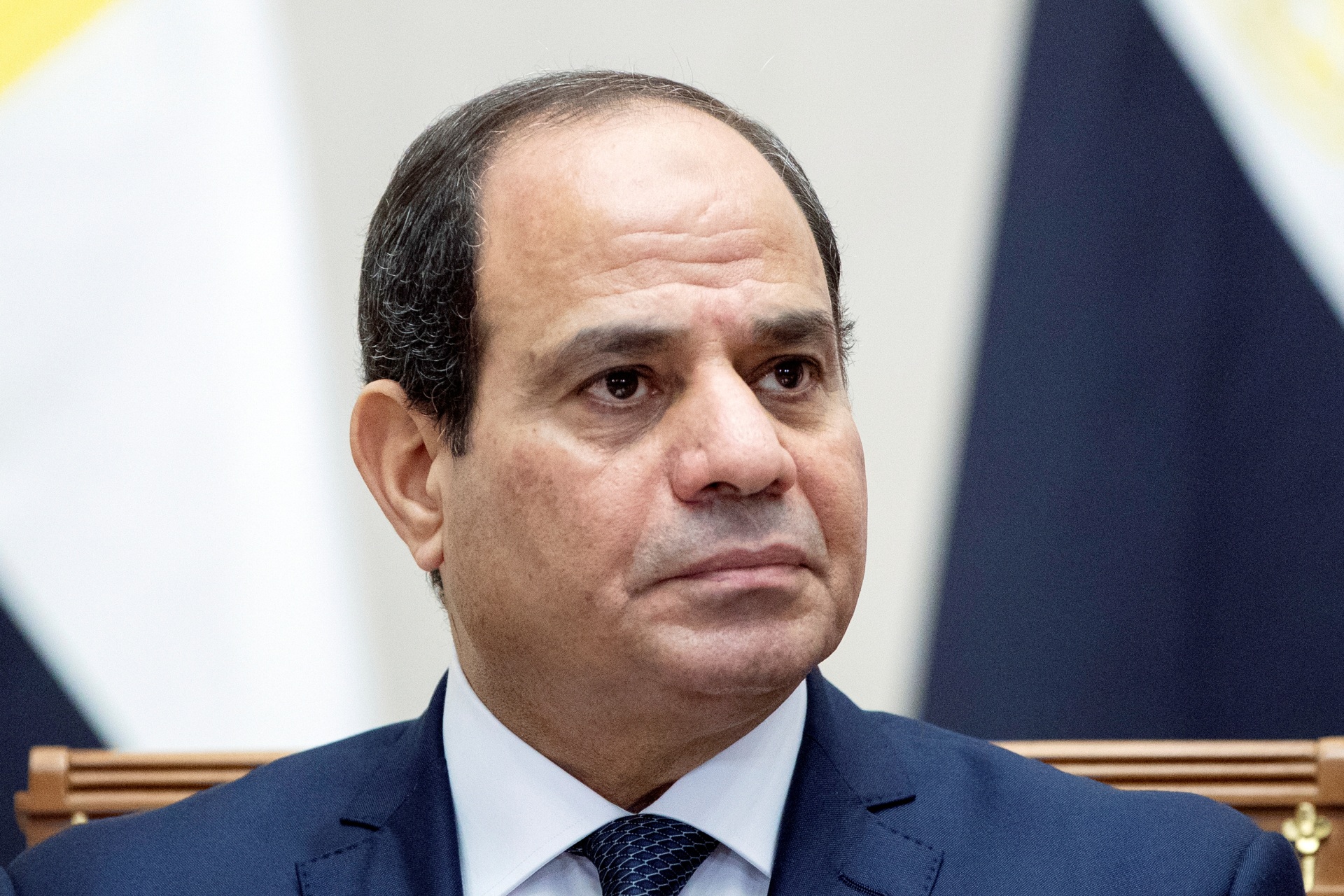Sisi Has His Own Jamal Khashoggi
It’s time to hold Egypt accountable for the U.S. citizens it has unjustly victimized.

By experts and staff
- Updated
Experts
![]() By Steven A. CookEni Enrico Mattei Senior Fellow for Middle East and Africa Studies
By Steven A. CookEni Enrico Mattei Senior Fellow for Middle East and Africa Studies
This article was first published here on ForeignPolicy.com on April 8, 2019.
Over the last six months, Washington has been consumed with the murder of Jamal Khashoggi, a legal resident of the United States, apparently at the hands of Saudi agents. It has led to an unprecedented debate about the U.S.-Saudi relationship and Saudi Arabia’s value as a strategic ally. While global outrage built over the highly publicized killing and lame cover-up, an American was suffering in anonymity and silence from the grievous wounds inflicted on her by another important U.S. ally: Egypt.
Her name is April Corley. Last week, I spent a gut-wrenching hour with her in Washington, and days later, I am still having a hard time squaring the woman I met with the smiling woman in pictures with her boyfriend on Sept. 13, 2015. Corley’s partner, Rafael Bejarano, is now dead, and she endures relentless physical pain from an attack that left her riddled with shrapnel and bullet wounds. Corley walks and speaks haltingly; she could barely lift her hand to greet me. You can tell it is difficult for her to sit. She has post-traumatic stress disorder. The meeting shook me to the core. Early in our marriage, my wife and I frolicked in Egypt’s Western Desert not far from where Bejarano and 11 others were killed and where Corley was wounded. Pictures of that trip adorn a wall in our bedroom.
On that September day, an Egyptian-operated, U.S.-supplied, Boeing-manufactured Apache helicopter inexplicably attacked their tourist group. Corley was the only American among the group of Mexican nationals. As an investigation by Foreign Policy discovered, following the initial attack the Apache returned and continued to strafe the dead and wounded for several hours. It is hard to understand why. There was nothing to indicate to military forces that they were anything other than a typical tourist group out for a desert trek. The vehicles in which the group was traveling were clearly marked with the logo of the tourist company, and they had a tourist police escort.
Even after a surviving driver and an accompanying member of Egypt’s tourist police managed to escape the hell raining down on them to seek help at a nearby military checkpoint, it took hours for the Egyptian authorities to dispatch soldiers to assist. Eventually, locals from a village in the vicinity evacuated Corley, who ended up in a hospital near Cairo. She was airlifted to the United States a few days later.
Corley will never work again. She was a successful dancer, choreographer, roller-skater, and stunt double who worked with the likes of Madonna and Katy Perry as well as appeared in a slew of music videos and commercials. She may never recover from her physical wounds and psychological trauma. The Egyptian government, after blaming the tour group for alternately not having the proper permits (they did) and being in the wrong place (they weren’t), finally offered Corley $150,000 in compensation. Her lawyers believe that she should get almost 100 times that amount based on an analysis of her lost income and medical needs over her expected lifetime.
There is no doubt that Egypt confronts a nasty insurgency in the Sinai Peninsula and has legitimate concerns about the security of its western border. I myself have advocated in this magazine in favor of additional military assistance to Egypt to ensure its security and fight terrorism. While the United States has a responsibility to its ally, it also has a duty to make sure its allies responsibly use the weapons Washington supplies to them (with the generous assistance of U.S. taxpayers). The United States also has a responsibility to ensure that when its citizens are hurt by the negligent or criminal actions of its allies, it holds those allies accountable. Thus far, none of that has happened. The Egyptian government has been unwilling to come to terms with Corley, and she has no recourse in U.S. courts—she cannot sue Egypt because of the Foreign Sovereign Immunities Act of 1976. There is no point in trying to mount a case in Egypt’s courts, which could take years and would immediately be politicized.
That leaves the Trump administration and Congress. President Donald Trump was instrumental in winning the release of Aya Hijazi, an American citizen who had been held unjustly in an Egyptian jail from May 2014 to April 2017. Perhaps, as he did with Hijazi, Trump will press Corley’s case with Egyptian President Abdel Fattah al-Sisi when they meet at the White House on Tuesday, but one can never be sure with an administration that lacks discipline and a policy process. U.S. National Security Council staffers are aware of her injuries, but Trump could could just as easily hold forth on Sisi’s shoes. There is also the problem that Trump and his administration have sought to place tensions with Egypt over human rights abuses and reforms in the past and focus instead on common concerns related to Egypt’s economic recovery and fight with extremists. If Trump determines that these issues should be given pride of place in the bilateral relationship, Corley will need Congress.
In the past, I have argued that docking Egypt’s military aid would make the country neither more stable nor democratic so there was no reason to pick a fight over the assistance. I stand by that assessment. When it comes to Corley, though, something needs to be done. It is not just because her case is so upsetting but because those Apache pilots are still flying, the Foreign Ministry remains unmoved, and the Egyptian president is coming to Washington this week to seek 10 more of the same helicopters. So Congress, which holds the purse strings, should subtract the more than $14 million Corley’s lawyers say she needs from Egypt’s annual allotment of $1.3 billion in military assistance and transfer it to her. The Egyptian government cannot simultaneously declare itself open for the tourist trade, demand that U.S. taxpayers fund its American-made arsenal, almost kill an American citizen with a piece of that arsenal, and then callously ignore the suffering of that American.
April Corley deserves better, and the United States deserves a better ally.
